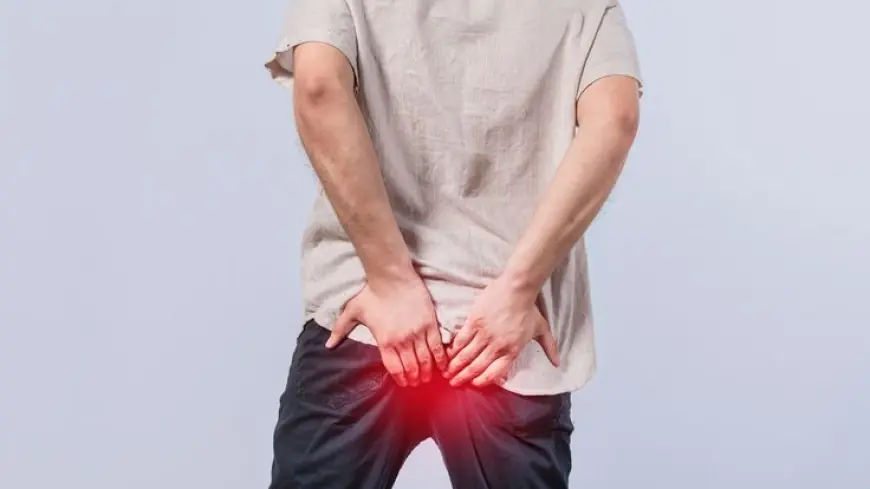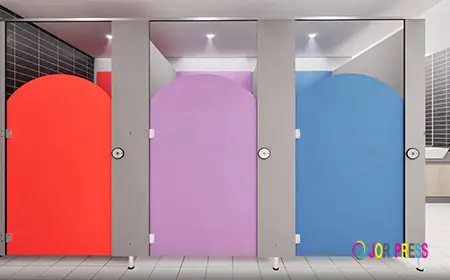Riyadh: Hemorrhoid Suppositories? A Guide to Effective Symptom Relief
For those exploring Hemorrhoid Treatment in Riyadh, suppositories represent a convenient and targeted method for alleviating the discomfort associated with this condition.

Hemorrhoids, often referred to as "piles," are swollen veins in the anus and lower rectum, similar to varicose veins. They are an incredibly common condition, affecting a significant portion of the adult population at some point in their lives. While generally not dangerous, hemorrhoids can cause a range of uncomfortable and sometimes distressing symptoms, including itching, pain, discomfort, swelling, and bleeding, significantly impacting quality of life. Understanding the nature of hemorrhoids – whether they are internal (inside the rectum) or external (under the skin around the anus) – is crucial, as it often dictates the most effective treatment approach.
Introducing Suppositories: A Targeted Approach to Relief
When seeking relief from the acute symptoms of hemorrhoids, many individuals turn to over-the-counter or prescription medications. Among these, hemorrhoid suppositories are a popular and effective option, particularly for internal hemorrhoids. These small, solid, bullet-shaped medications are designed to be inserted into the rectum, where they dissolve at body temperature, releasing active ingredients directly to the affected area. For those exploring Hemorrhoid Treatment in Riyadh (جراحة شد الوجه في الرياض), suppositories represent a convenient and targeted method for alleviating the discomfort associated with this condition.
The Discomfort of Hemorrhoids
The symptoms of hemorrhoids can vary in intensity, from a mild itch to severe pain and significant bleeding. Internal hemorrhoids, while often painless due to fewer nerve endings, can prolapse (protrude outside the anus) and become painful or bleed. External hemorrhoids, on the other hand, are highly sensitive due to numerous nerve endings and can be excruciatingly painful, especially if a blood clot forms within them (thrombosed hemorrhoids). These symptoms often worsen with straining during bowel movements, prolonged sitting, or physical exertion.
The Science Behind Hemorrhoid Suppositories and Their Role in Hemorrhoid Treatment in Riyadh, Jeddah and Saudi Arabia
Hemorrhoid suppositories are more than just a delivery system; they are a sophisticated method for introducing active medications directly to the inflamed tissues, offering targeted relief and promoting healing. Understanding how these small forms of medication work can illuminate their effectiveness as a component of Hemorrhoid Treatment in Riyadh, Jeddah and Saudi Arabia.
How Suppositories Deliver Medication
The unique design of suppositories allows for efficient and direct medication delivery.
-
Localized Action: When inserted into the rectum, the suppository melts at body temperature. This allows the active ingredients to be absorbed directly by the rectal tissue and the inflamed veins of the hemorrhoids. This localized absorption minimizes systemic side effects that might occur with oral medications, concentrating the treatment where it's needed most.
-
Sustained Release: Unlike creams or ointments applied externally, suppositories can offer a more sustained release of medication as they gradually dissolve over time. This provides longer-lasting relief from symptoms, especially beneficial for internal hemorrhoids where external application is less effective.
Common Active Ingredients and Their Actions
Hemorrhoid suppositories contain various active ingredients, each designed to address specific symptoms.
-
Vasoconstrictors: Ingredients like phenylephrine work by temporarily narrowing blood vessels. This action helps to reduce swelling and inflammation of the hemorrhoidal tissue, thereby alleviating pain, itching, and discomfort.
-
Hydrocortisone (Corticosteroids): These are powerful anti-inflammatory agents. Hydrocortisone suppositories are particularly effective at reducing severe itching, irritation, and swelling associated with inflamed hemorrhoids. They are often available by prescription for stronger concentrations.
-
Local Anesthetics: Ingredients such as pramoxine or benzocaine provide temporary numbness to the nerve endings in the affected area. This numbing effect offers rapid relief from pain, burning, and discomfort, especially useful before or after a bowel movement.
-
Protectants: Ingredients like zinc oxide, cocoa butter, or shark liver oil form a protective barrier over the irritated tissue. This barrier helps to soothe the inflamed area, reduce friction, prevent further irritation from stool, and promote healing.
-
Astringents: Witch hazel is a common astringent found in some suppositories. It works by causing tissue to contract, which can help to reduce swelling and provide a cooling, soothing sensation.
Targeting Internal vs. External Hemorrhoids
Suppositories are primarily designed for internal hemorrhoids, though they can offer some relief for external symptoms as well due to absorption.
-
Internal Relief: For internal hemorrhoids, which often manifest as bleeding or prolapse without significant pain unless thrombosed, suppositories are ideal because they deliver medication directly to the internal veins.
-
Complementary to External Treatments: For external hemorrhoids, where pain and itching are more pronounced, suppositories can complement topical creams or ointments. While suppositories are absorbed internally, the active ingredients can still help reduce overall inflammation that contributes to external discomfort.
By understanding these mechanisms, it becomes clear why suppositories are a valuable tool in the management of hemorrhoid symptoms, offering a targeted and effective approach within the broader scope of Hemorrhoid Treatment in Riyadh, Jeddah and Saudi Arabia.
When Suppositories are Recommended: Indications and Best Practices
Hemorrhoid suppositories are a vital part of the initial management of hemorrhoids, particularly for individuals experiencing mild to moderate symptoms. Knowing when and how to use them effectively is crucial for optimal relief.
Primary Indications for Suppository Use
Suppositories are typically recommended for specific types and severities of hemorrhoids.
-
Internal Hemorrhoids: They are most effective for internal hemorrhoids (Grade 1 and 2) that cause bleeding, itching, or mild discomfort but are not significantly prolapsed or thrombosed. The direct application of medication inside the rectum targets the source of the problem.
-
Mild to Moderate Symptoms: For symptoms like itching, minor pain, burning, or swelling that are not debilitating, suppositories provide localized relief.
-
Post-Bowel Movement Relief: Using a suppository after a bowel movement can be particularly effective, as the area is clearer, allowing the medication to remain in contact with the tissue for longer and provide sustained relief from post-defecation discomfort.
Important Considerations for Use
Proper application and adherence to guidelines maximize effectiveness and minimize potential side effects.
-
Hygiene: Always wash your hands thoroughly before and after inserting a suppository.
-
Preparation: Ensure the suppository is firm. If it's too soft, chill it in the refrigerator for a few minutes. Lubricating the tip with a small amount of water-based jelly can make insertion easier. Avoid petroleum jelly, as it can hinder the suppository from melting.
-
Insertion Technique: Lie on your side with your bottom leg straight and your top leg bent towards your stomach, or stand with one foot on a chair. Gently push the suppository, pointed end first, just past the anal sphincter (about 1 inch into the rectum). Remain lying down for a few minutes to allow it to settle and begin dissolving.
-
Dosage and Duration: Most over-the-counter (OTC) suppositories are designed for short-term use, typically 2 to 4 times a day for up to a week. Prolonged use of certain ingredients, particularly hydrocortisone, can lead to thinning of the rectal lining or other side effects. Always follow the instructions on the packaging or your healthcare provider's advice.
-
Consistency: For best results, use suppositories regularly as directed, even if symptoms seem to improve quickly.
When to Seek Professional Advice
While suppositories offer significant relief, they are not a permanent cure, and some symptoms warrant a visit to a healthcare professional.
-
Persistent or Worsening Symptoms: If your symptoms do not improve after a week of using OTC suppositories, or if they worsen, it's time to consult a healthcare provider for Hemorrhoid Treatment in Riyadh, Jeddah and Saudi Arabia.
-
Significant Bleeding: While minor bright red bleeding is common, persistent, heavy, or dark-colored bleeding in stool should be evaluated by a doctor immediately.
-
Severe Pain or Prolapse: If you experience severe pain, notice a hard, painful lump around the anus (thrombosed external hemorrhoid), or if an internal hemorrhoid remains prolapsed and cannot be pushed back in, seek urgent medical attention.
-
New Symptoms: Any new or unusual symptoms, such as changes in bowel habits, unexplained weight loss, or abdominal pain, should prompt a medical evaluation to rule out other conditions.
Suppositories are an excellent first-line defense against the discomfort of hemorrhoids, offering localized and effective symptom management. However, they should always be used as part of a broader strategy that may include lifestyle changes and, if necessary, more advanced medical or surgical interventions, guided by a healthcare professional.
Beyond Suppositories: Comprehensive Hemorrhoid Management in Riyadh
While hemorrhoid suppositories are highly effective for symptom relief, especially for mild to moderate internal hemorrhoids, it's crucial to understand that they are generally not a permanent cure. Comprehensive Hemorrhoid Treatment in Riyadh often involves a multi-faceted approach, combining lifestyle modifications with various medical and, if necessary, surgical interventions.
Lifestyle and Dietary Adjustments: The Foundation of Care
These are the first and most critical steps in managing and preventing hemorrhoids.
-
High-Fiber Diet: Increasing your intake of dietary fiber (from fruits, vegetables, whole grains, and legumes) helps to soften stools, making them easier to pass and reducing straining during bowel movements, which is a major cause of hemorrhoids.
-
Adequate Hydration: Drinking plenty of water throughout the day keeps stools soft and promotes regular bowel movements.
-
Avoid Straining: Do not strain during bowel movements, and avoid prolonged sitting on the toilet. If you feel the urge, go to the bathroom promptly.
-
Regular Exercise: Physical activity can help prevent constipation and improve overall bowel function.
-
Sitz Baths: Soaking the anal area in warm water for 15-20 minutes several times a day can relieve pain, itching, and muscle spasms.
Over-the-Counter (OTC) and Prescription Topical Medications
Beyond suppositories, other topical options play a role in symptom management.
-
Creams and Ointments: These are applied externally for relief of external hemorrhoid symptoms, containing similar ingredients to suppositories (hydrocortisone, anesthetics, protectants).
-
Medicated Wipes: Pre-moistened wipes containing witch hazel or other soothing agents can provide gentle cleansing and temporary relief.
Minimally Invasive In-Office Procedures
For hemorrhoids that don't respond to conservative measures, or for more persistent symptoms, various in-office procedures can offer longer-lasting solutions.
-
Rubber Band Ligation: This common procedure involves placing a small rubber band around the base of an internal hemorrhoid, cutting off its blood supply. The hemorrhoid then shrinks and falls off within about a week.
-
Sclerotherapy: A chemical solution is injected into the hemorrhoid, causing it to scar and shrink. This is typically used for smaller internal hemorrhoids.
-
Infrared Coagulation (IRC): A small probe delivers infrared light to the hemorrhoid, causing it to coagulate and shrink. It's often used for bleeding internal hemorrhoids.
Surgical Interventions
For severe, large, or recurring hemorrhoids that don't respond to other treatments, surgical options may be considered.
-
Hemorrhoidectomy: This is the surgical removal of hemorrhoids. It's often considered the most effective treatment for large or prolapsed hemorrhoids but involves a longer and more painful recovery.
-
Stapled Hemorrhoidopexy: This procedure uses a stapling device to remove a ring of hemorrhoidal tissue and lift the remaining hemorrhoidal tissue back into place within the anal canal, reducing blood flow. It typically involves less pain than a traditional hemorrhoidectomy.
-
Laser Hemorrhoidoplasty (LHP): This minimally invasive laser technique uses laser energy to shrink the hemorrhoidal tissue from the inside, often resulting in less pain and a faster recovery compared to traditional surgery. This is a popular option for Hemorrhoid Treatment in Riyadh, Jeddah and Saudi Arabia.
The journey to effective hemorrhoid management often begins with simple steps like suppositories and lifestyle changes. However, for many, the path may lead to more advanced interventions. A proper diagnosis and guidance from a specialist are essential to determine the most appropriate Hemorrhoid Treatment in Riyadh, Jeddah and Saudi Arabia for your specific condition.
Frequently Asked Questions
When considering hemorrhoid suppositories as a treatment option in Riyadh, several questions often come to mind. Here are uniquely highlighted answers to some common inquiries.
Many People Wonder: Are hemorrhoid suppositories a permanent cure for hemorrhoids?
No, hemorrhoid suppositories are generally not a permanent cure for hemorrhoids. They are designed to provide effective temporary relief from symptoms such as pain, itching, burning, and swelling by delivering medication directly to the inflamed area. While they can significantly alleviate discomfort and help the hemorrhoids shrink temporarily, they do not address the underlying cause of hemorrhoids. For long-term solutions or persistent issues, a specialist in Riyadh will recommend lifestyle changes or more definitive medical procedures.
Is it true that: All hemorrhoid suppositories contain the same active ingredients?
No, that's not true. Hemorrhoid suppositories contain various active ingredients, each with a different primary function. Some contain vasoconstrictors (like phenylephrine) to reduce swelling, others have hydrocortisone (a steroid) to decrease inflammation and itching, while some may include local anesthetics (like pramoxine) to numb pain. Additionally, some contain protectants (like zinc oxide or cocoa butter) to soothe and form a barrier. A healthcare provider in Riyadh can help you choose the right type of suppository based on your specific symptoms.
Often Asked: Can I use hemorrhoid suppositories during pregnancy or while breastfeeding?
If you are pregnant or breastfeeding, it is crucial to consult your healthcare provider in Riyadh before using any hemorrhoid suppositories. While many over-the-counter options are considered safe for short-term use, some active ingredients, particularly corticosteroids like hydrocortisone, might require medical guidance. Your doctor will assess your individual situation, including the severity of your symptoms and any other medical conditions, to recommend the safest and most appropriate Hemorrhoid Treatment in Riyadh for you and your baby.
Frequently Inquired: How long should I use over-the-counter hemorrhoid suppositories before seeing a specialist?
For over-the-counter hemorrhoid suppositories, it is generally recommended to use them for no more than seven consecutive days. If your symptoms do not improve significantly within this timeframe, or if they worsen, it is a clear indication that you should consult a specialist in Riyadh. Persistent or severe symptoms, bleeding, or if you develop new concerns (like a hard, painful lump) warrant immediate medical attention, as these might suggest a more serious condition requiring advanced Hemorrhoid Treatment in Riyadh.
Finding Lasting Relief: Expert Care in Riyadh
Hemorrhoids can be a debilitating condition, but effective relief is within reach. While suppositories offer a valuable first line of defense for symptom management, understanding the full spectrum of Hemorrhoid Treatment in Riyadh is key to finding a long-term solution. From lifestyle adjustments to advanced minimally invasive procedures, expert care can guide you towards a comfortable and healthier life.
Ready to find lasting relief from hemorrhoid discomfort? Don't let symptoms impact your daily life. Contact Royal Clinic Saudia in Riyadh today for a comprehensive consultation with their specialized team. Take the first step towards personalized and effective treatment.
What's Your Reaction?
 Like
0
Like
0
 Dislike
0
Dislike
0
 Love
0
Love
0
 Funny
0
Funny
0
 Angry
0
Angry
0
 Sad
0
Sad
0
 Wow
0
Wow
0



















































